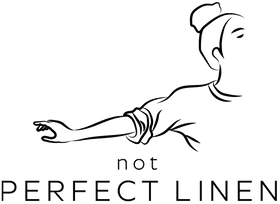With the rise in awareness about environmental impact and personal health, more people are turning to organic materials for their clothing. In this blog, we will explore the reasons why organic fabric might be the perfect choice for your wardrobe.
What is Organic Fabric?
Organic fabric is made from natural fibers grown without the use of synthetic pesticides, herbicides, or genetically modified organisms (GMOs). These materials are processed in an environmentally friendly manner to produce clothing that is free from harmful chemicals.
To delve deeper into the roots of organic fabric, it’s essential to understand the cultivation processes involved. Organic cotton, for instance, relies heavily on traditional farming techniques that prioritize sustainability. Farmers use natural composting methods and crop rotation to maintain soil fertility, supporting biodiversity without relying on synthetic inputs. Over time, these practices have shown to conserve water and reduce pollution, as many of the natural fibers require significantly less water than conventional fibers like cotton, especially in the case of organic cotton.
Organic linen, another prominent organic fabric, embodies a similar philosophy rooted in sustainability. Linen is derived from the flax plant, which thrives with minimal use of water and thrives without the need for heavy use of pesticides or fertilizers. Embracing organically made linen clothing means engaging with fashion that respects the planet’s natural resources.
Health Benefits of Organic Fabric
Organic textiles are free from toxic chemicals and are less likely to cause allergies and skin irritations. They provide a safer option for individuals with sensitive skin or chronic health conditions, ensuring comfort alongside style.
One of the key advantages of opting for organic fabric is that it reduces your exposure to harmful toxins. Conventional fabrics might be treated with chemical finishes or dyes that can contain allergens and irritants. Choosing organic means fewer health risks linked to synthetic chemical exposure. A study highlights that organic fabrics can minimize pollution of water supplies, emphasizing this health benefit.
Environmental Impact of Choosing Organic
Choosing organic fabric significantly reduces the environmental footprint of your wardrobe. Organic farming practices preserve biodiversity, improve soil health and reduce pollution, making it a sustainable choice for eco-conscious consumers.
Moreover, embracing organic fashion aligns with supporting ethical farming methods that avoid harmful pesticides. This not only protects the environment but also preserves the health and wellbeing of farmers and their communities. By choosing organic, you contribute to maintaining healthier ecosystems, as highlighted by the significant reduction in carbon dioxide emissions associated with the production of organic materials.
At notPERFECTLINEN, we are committed to ethical sourcing, which includes supporting local farms that utilize organic practices. These efforts ultimately help reduce the industry’s carbon footprint, as transport and chemical treatments are minimized.
The Comfort and Quality of Organic Clothes
Organic fabrics like organic cotton, bamboo, and hemp offer superior softness and comfort due to their natural fibers. They are durable, breathable, and ensure high-quality clothing that withstands the test of time.
Apart from being gentle on the skin, organic fabrics are also known for their breathability and temperature-regulating properties, making them ideal for all weather conditions. Their moisture-wicking nature helps keep you cool and dry even during hot and humid days. This is why many people find them not only beneficial for comforting sensitive skin but also excellent for enhancing everyday wear.
The longevity speaks volumes for their quality; high-quality organic clothes maintain their shape and appearance longer than synthetic fabric garments. Consider the Full Cross Back Pinafore Linen Apron made from Lithuanian linen that becomes softer with each wash, illustrating how organic fabrics improve with age.
Supporting Fair Trade and Ethical Practices
Many organic fabric manufacturers are committed to fair trade and ethical labor practices, ensuring that workers are paid fairly and work in safe conditions. By choosing organic, you support ethical production standards and contribute to better livelihoods for workers.
At notPERFECTLINEN, we pride ourselves on our ethical practices that go hand in hand with our dedication to quality. By embracing a made-to-order model, we minimize waste and empower both workers and customers to engage in sustainable fashion practices. Our commitment to handcrafting since 2014 assures consumers they’re supporting a system that values ethics over profits.
Embrace a Sustainable Choice
Choosing organic fabric for your wardrobe is a decision that benefits not just you but the entire planet. From health advantages to enhanced comfort and ecological responsibility, organic fabric offers a multitude of reasons to switch. Embrace the change for a sustainable and mindful lifestyle.


